
 Flash News
Flash News
Ersekë/ Elderly man struck by lightning, dies on the spot
KAS vendos hapjen e 229 kutive të materialeve zgjedhore të Qarkut Vlorë
Fraud and money laundering, 9 thousand square meters of land seized in Fushe Preza
Constitutional Court reviews TikTok shutdown decision
Murder of Ermir Dedja, two people arrested, smuggled the vehicle used by the perpetrators
Report: Albania, the only country in the region without industrial policies

Countries with economic prosperity became so through the development of industry and technological innovation. Albania, in addition to being the country with the most underdeveloped industry in the Region and beyond, still does not have a formal document on industrial policy.
The report “Monitoring and evaluating industrial performance and policy impact in 6 Western Balkan countries” by the Regional Cooperation Council notes that Albania is the only country in the Region that does not have a formal document structuring the country's industrial policy.
The analysis notes that the government is in the process of developing its industrial strategy, but this means that the country still lacks priorities and a structure to intervene in improving industrial competitiveness, increasing production capacities, and improving integration with the regional and European common market.
The report identifies different developments among countries in the region, highlighting that some of them have adopted formal documents guiding industrial policy:
For example, Bosnia and Herzegovina does not have a unified industrial policy for the entire country. However, the entity of Republika Srpska has developed a Strategy for Industrial Development, which aims to improve the production structure and promote investments in the industrial sector.
Kosovo is among the latest countries to adopt a formal document in the field of industrial policy. In 2023, the “Strategy for Industrial Development and Business Support until 2030” was adopted. This document reflects a commitment to the transformation of key sectors, including innovative aspects and compatible with commitments to integration into European markets.
Montenegro has been in the process of formulating industrial policies since 2016. The latest document, covering the period 2019–2023, emphasizes the importance of modernizing the sector, improving productivity, and increasing integration into global supply chains. This document reflects a strategic orientation towards diversifying sectors and stimulating innovation.
North Macedonia is one of the pioneers in this field, having adopted its own industrial policy since 2009. The current document, “Industrial Strategy of North Macedonia 2018–2027”, sets a long-term vision and includes measures aimed at improving production capacities, increasing innovation and integrating into global markets. This document reflects a strong commitment to increasing competitiveness and structural reform in the industrial sector.
Serbia began developing industrial policies in 2011 and has updated its industrial development strategy for the period 2021–2030. This document aims to increase production capacity, modernize the sector through the adoption of advanced technologies, and increase cooperation between the public and private sectors, integrating measures that support innovation and compliance with European standards.
The formulation of industrial policies is closely linked to efforts to accelerate integration with the European Single Market and to meet European standards and requirements, especially in the context of “Initiatives such as the European Green Deal, New Industrial Strategy for Europe” and other EU-supported initiatives.
The manufacturing sector in our country has entered a long recession. The latest INSTAT data show that agriculture fell for the fourth consecutive year in 2024, while industry fell for the second year. Agricultural production fell by -1.1% in 2024 from -1.8 in 2023, while the industrial sector recorded a decline of -6.7%, the strongest since the 2020 pandemic.
The industrial sector entered its second year of decline in 2024, driven mainly by factors related to the decline in the value of the euro and rising domestic costs. The euro's decline from 122 lek in 2021 to less than 100 lek last year reduced exporters' revenues, forcing many companies to close down. Clothing and footwear factories alone cut nearly a fifth of their jobs last year, according to short-term statistics./ Monitor
Latest news



"The real reason why young Albanians like me are coming to the UK illegally"
2025-06-04 20:07:39
Government opens a legal path for investments in Army properties
2025-06-04 19:49:25
Elderly woman forgets stove on, house burns down in Vlora
2025-06-04 19:46:42

Ersekë/ Elderly man struck by lightning, dies on the spot
2025-06-04 19:12:55
Trump calls Putin, warns Ukraine that Russia will respond to attack on airbases
2025-06-04 19:05:56
Zelensky's Chief of Staff Meets with Secretary Rubio in Washington
2025-06-04 18:53:37

Rama opens a legal "path" for investments in Army properties
2025-06-04 18:41:33
How to think like a Stoic
2025-06-04 18:19:02

May 11th Elections/Balliu: The European Parliament condemned the electoral farce
2025-06-04 18:05:14


Tirana Pyramid “symbol of exclusion” for people with disabilities
2025-06-04 17:32:27



SPAK sends Evis Berberi, Belinda Balluku's right-hand man, for trial
2025-06-04 16:39:23


Reporting to the Parliament of independent institutions postponed indefinitely
2025-06-04 16:11:48

Turkish court jails five mayors of largest opposition party
2025-06-04 15:56:26



KAS vendos hapjen e 229 kutive të materialeve zgjedhore të Qarkut Vlorë
2025-06-04 15:04:47


Flax seeds, positive and negative effects of their consumption
2025-06-04 14:45:19
Housing costs are not increasing, apartment prices are
2025-06-04 14:39:07
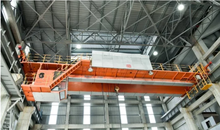
A 51-year-old man was injured while working at the ferrochrome plant in Elbasan.
2025-06-04 14:14:12




Italian university engulfed in flames, student evacuation begins quickly
2025-06-04 13:28:22
39-year-old woman disappears in Gjirokastra, husband: She didn't come home
2025-06-04 13:15:24

The saga of failures to constitute the Kosovo Assembly continues!
2025-06-04 12:56:25
Government villas will be turned into luxury hotels
2025-06-04 12:51:21
Artan Tafani testifies for the first time against Laert Haxhiu's gang
2025-06-04 12:24:57

Scary figures: 8 in 10 Albanians believe the healthcare system is corrupt
2025-06-04 12:08:18


Constitutional Court reviews TikTok shutdown decision
2025-06-04 11:45:24
75-year-old man disappears in Korça! His wife: He has been gone for two days
2025-06-04 11:32:25





Iran rejects US demand for uranium enrichment
2025-06-04 10:15:32
Hoxha: An Albanian was caught distributing cocaine in the Russia-Ukraine war
2025-06-04 10:01:32
A safe was robbed, two people were arrested in Tirana
2025-06-04 09:54:36
Popular singer Jessie J diagnosed with breast cancer
2025-06-04 09:49:34
Young man arrested in Lazart for carrying gun and gun in apartment
2025-06-04 09:33:08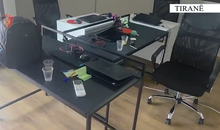
Call center fraud, two arrested in Tirana
2025-06-04 09:24:53
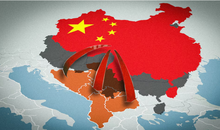
How is China exploiting the West's retreat to expand its presence in the region?
2025-06-04 09:07:32
Over a million pilgrims begin Hajj pilgrimage
2025-06-04 08:52:44
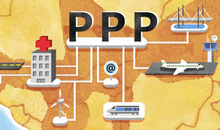
Banks ask the Bank of Albania to facilitate loans for PPPs in infrastructure
2025-06-04 08:29:07
Horoscope, what do the stars have in store for you today?
2025-06-04 08:16:36

Morning Post/ In 2 lines: What mattered yesterday in Albania
2025-06-04 07:47:17
Analyst: Political acts have damaged Albania more than criminal gangs
2025-06-03 23:00:19


Baçi: Rama was afraid of popular discontent, stole more votes than he thought
2025-06-03 22:10:14


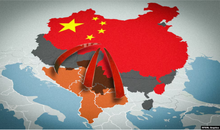

9 months after taking office, the Chief of the Guard, Ermal Onuzi, resigns
2025-06-03 20:14:09

15-year-old injured by gunfire at 'Ali Demi' pizzeria, police arrest perpetrator
2025-06-03 19:32:04

Why don't I want to spend a single day in Vlora?!
2025-06-03 18:26:21
Tech-stinction alert: Will humanity shrink to just 100 million people?
2025-06-03 18:02:23
EPP accepts Berisha's request: A fact-finding mission will be sent to Albania
2025-06-03 17:49:47
Three vehicles collide in Elbasan, several injured suspected
2025-06-03 17:45:02
Prosecutor Marsida Frashëri faces a request for dismissal at the KPA
2025-06-03 17:21:57
Nga Holanda në Finlandë, si operonte rrjeti shqiptar i drogës
2025-06-03 17:10:34

Tusk kërkon votëbesim në parlamentin polak më 11 qershor
2025-06-03 16:59:01






EUROPOL: Minors increasingly targeted by terrorist propaganda
2025-06-03 15:04:56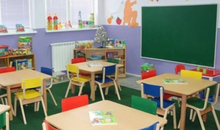
Kindergarten in Gramsh reopens where children were poisoned with salmonella
2025-06-03 14:59:16
